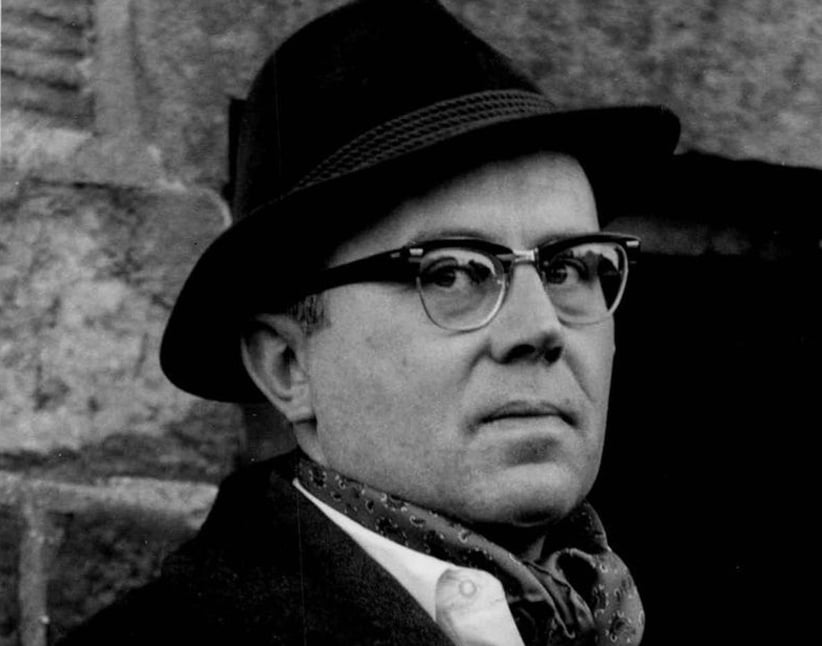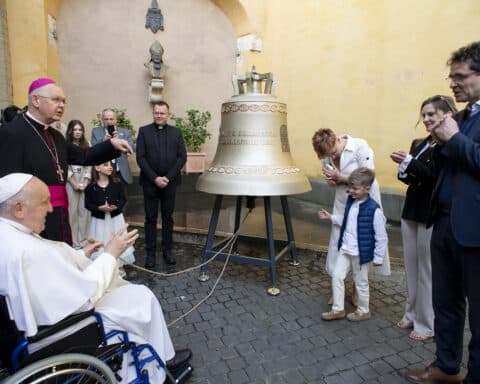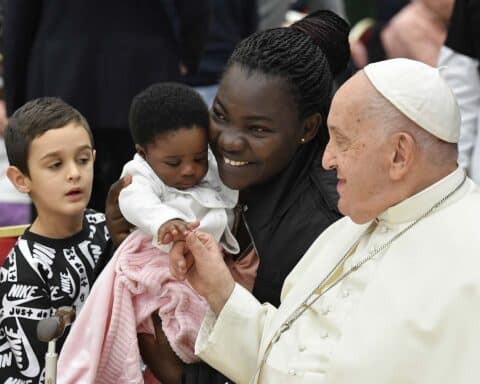Yesterday (as I write this) marked the 30th anniversary of the birth into everlasting life of Russell Kirk, the godfather of the modern American conservative movement, which was something rather different from the nationalist cult of personality that has usurped the name of conservatism today. I first met Dr. Kirk roughly 35 years ago at his ancestral home of Piety Hill, on the edge of the little village of Mecosta, Michigan. My wife, Amy, and I became intimately familiar with Piety Hill and Mecosta when, a year after Dr. Kirk’s death, his widow, Annette, invited us to stay there while I searched for a job back in our native Midwest.
If those walls could talk, they would tell the story of hundreds or even thousands of people who had sojourned there, some for just a day or two; others, like us, for several months; and still others for years at a time — all the beneficiaries of the kindness and generosity of Russell and Annette, who threw open the doors of the Last Homely House (a phrase Kirk borrowed from J.R.R. Tolkien and made his own) to all who were in need, whether they realized it or not.
Stories of kindness
Kirk himself told the story of many of those guests in his memoir, “The Sword of Imagination,” completed in his final days and published after his death. In those pages, the weary travelers who took refuge at Piety Hill are never portrayed as a nuisance or even as the recipients of the Kirks’ charity, though that they — we — most certainly were. Instead, their presence in this latter-day Rivendell is treated as the most natural thing, an obvious extension of Kirk’s own desire to live independently, to forge a family in a world hostile to domestic life, to defend the Permanent Things against the relentless march of Progress, which, like the marauding mobs of Tolkien’s orcs, has left so much destruction in its wake. Stories of charity, kindness and generosity are recounted not as proof of the Kirks’ own virtues but as the inevitable fruit of a life well lived.
That such hospitality — like a late-night conversation on a summer porch in Ray Bradbury’s Green Town — now seems strange to us speaks volumes about what we have lost.
And fruits they are: the fruit of the Holy Spirit, the blossoming forth of the life of Christ in the lives of those who conform themselves to the world as God meant it to be, and as his Son restored it in potentia through his death and resurrection.
An everyday saint?
In an episode of “Cultural Debris,” a podcast hosted by Alan Cornett, one of Dr. Kirk’s last assistants, Bradley Birzer, a recent biographer of Kirk who holds the Russell Amos Kirk Chair of American Studies at Hillsdale College, declares Kirk “saintly” for his unrelenting hospitality. The word at first struck me as odd — a bit much, one might say, to apply to someone who was simply doing what we are all called to do. But that, of course, is the point: For many are called, but few are chosen, and today especially even fewer choose to respond to the gracious gifts of the Holy Spirit in a way that manifests the Spirit’s fruits.
Dr. Kirk was an implacable foe of the automobile, which he referred to as a “mechanical Jacobin” that drove people from their homes and destroyed the very way of life that Henry Ford, perhaps out of guilt, felt compelled to memorialize in Greenfield Village. He famously threw a television off the roof of his home, the sheer effort of which alone (in those days before flat-screen TVs) tells us all we need to know about his feelings toward that cultural leveler. The most ornate room in the house at Piety Hill that Kirk himself designed after his ancestral home there burned to the ground on Ash Wednesday 1975 is the dining room, furnished with the cultural debris of Catholic churches that had been “renovated” during the spiritual spasms of the 1970s. Here, Russell and Annette entertained and talked with their guests for hours on end, with no smartphones to draw them away from the concrete people before them into a world of abstractions where charity and love cannot prevail.
That such hospitality — like a late-night conversation on a summer porch in Ray Bradbury’s Green Town — now seems strange to us speaks volumes about what we have lost. Yet even today, we are all called to the saintliness embraced so naturally and humbly by Russell (and Annette) Kirk, to the charity of everyday life that requires us to do nothing more than to live as we were meant to live.





